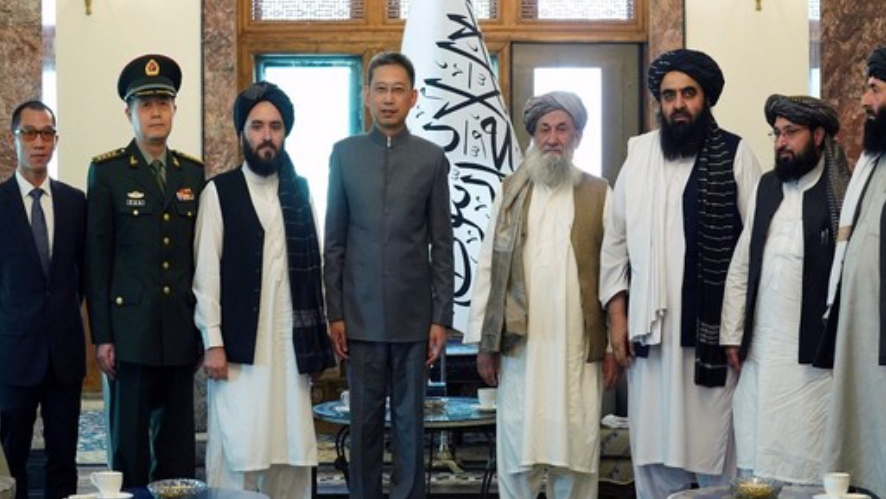Reflections on Europe’s Strategic Sensitivities
- SIS Blog

- Jul 14, 2025
- 5 min read

By Shreya Nautiyal
Europe must realise that key to its credibility in South Asia lies in adopting a more nuanced and principled stance in the region
Credibility in foreign policy is seldom secured by rhetoric alone - it requires steady and context-sensitive engagement. Europe’s reflexive call for “restraint and dialogue” when India is acting against terrorism suggests a disconnect between principled rhetoric and strategic empathy. The equal treatment of both states in question, despite one being clearly under assault, reflects a striking blindness. While the world mourns the loss of innocent lives in what was supposed to be an eden of tranquility in India’s Kashmir valley, the international response remained notably uneven. As India asserted its moral and strategic agency through Operation Sindoor on May 7, 2025, the international response was not met with collective support but rather with a calculated silence from certain quarters. In particular, Europe’s stance was marked less by an unequivocal condemnation of terrorism and more by a disturbing pattern of discretionary indignation - a phenomenon that raises questions about the West’s inconsistent moral compass.

Europe’s Selective Outrage
In the event of Pakistan’s disproportionate shelling on Indian border towns post Operation Sindoor, an egregious example of Europe’s double standards emerged when European Union’s (EU) top diplomat Kaja Kallus prompted India and Pakistan to “exercise restraint and pursuit dialogue” amid regional tensions. Such a flawed equivalence between the perpetrator and the victim of terrorism reflects a complete disregard for the loss of twenty six lives and clearly lacks strategic nuance. It is, however, important to acknowledge that India’s initial response was measured and calculated - characterised by economic and diplomatic measures aimed at curtailing the privileges extended to Pakistan - before resorting to the use of military might. In fact, India’s operation Sindoor was meticulously designed to target terrorist bases in Pakistan, ensuring no harm to Pakistan’s military installations or civilian areas, thus conforming to the principles outlined in the Geneva Convention.
Ironically, Kallas has previously underscored the importance of a robust defence mechanism, cautioning against what she terms as the “trap of self-deterrence” and asserting that “appeasement only strengthens the aggressor”. Yet, even as Brussels demands global cognisance and solidarity when its own interests are at stake, it uses a separate yardstick for humanitarian crises and terrorism elsewhere - issues in the Global South barely receive a whisper within Brussels’ corridors. The Western media often spotlights the humanitarian suffering in Ukraine crisis - often labeled as the ‘white man’s war’- as well as in the discussions concerning terrorism in Europe or the migration crisis, constructing a moral narrative that concerns European fragilities. However, when it comes to the issues beyond its borders, Europe’s unwavering advocacy championing values and human rights often takes a backseat.
Its hyphenated approach and a neutral stance on the ongoing Indo-Pak crisis exposes Europe’s wilful neglect and a deliberate marginalisation of non-European issues. Dr. Jaishankar in his 2022 speech, astutely remarked that “Europe’s problems are world’s problems but world’s problems are not Europe’s problems”. In a similar vein, in 2024, European Commissions’s former Vice President, Josep Borrell highlighted the “double standards” of the west in cases of international law, wars and climate change and therefore called out Europe for compartmentalising the world into two sub-divisions - “West against the Rest” conceding that “diplomacy is the art of managing double standards”. Its strategic silence and selective amnesia reveals the deep-seated disparities that define global diplomacy in the 21st century.
A Timeline of the 21st Century that Europe Ignores
EU has been following an equidistant approach even when Pakistan’s defence minister Khwaja Asif has recently admitted the country’s history of supporting, training and funding terrorist organisations as “dirty work” for the West, a mistake for which he said Pakistan had suffered. Brussels’ selective outrage becomes even more indefensible when viewed against the backdrop of terrorism India has endured, all backed by Pakistan-based terrorist organisations :
• 2000 : Chittisinghpura massacre (36 Sikhs killed by Lashkar-e-Taiba (LeT) terrorists), Kashmir
• 2001 : Indian Parliament attack (terrorists affiliated with Jaish-e-Mohammed (JeM) and LeT), New Delhi
• 2006 : 7/11 train bombing (responsibility claimed by LeT), Mumbai
• 2008: 26/11 attacks (Ajmal Kasab, LeT terrorist, the only surviving terrorist; his subsequent arrest confirmed Pakistan’s role), Mumbai
• 2016: Uri attack (attack backed by JeM), Kashmir
• 2019: Pulwama attack (attack on Indian security forces by JeM), Kashmir
• 2024: Reasi attack on Hindu pilgrims (responsibility taken by The Resistance Front (TRF)), Jammu
• 2025: Pahalgam attack (backed by TRF), Kashmir
West pays no heed to the miseries of the local populace of Global South. Despite clear proofs of Islamabad disturbing the peace of New Delhi, International Monetary Fund (IMF) is willing to loan $1 billion to Pakistan under its Extended Fund Facility. However, amidst the Russia-Ukraine war, EU consistently urged India to reduce its Russian ties and ban the import of Russian oil, even as a number of European countries continued to remain Russia’s top fossil fuel buyers. This shows a clear stance of Europe’s strategic convenience - preaching peace and restraint on the global front while pursuing national interests at home.
Partners, Not Preachers : A Need for Coherence
In his recent address on a global platform, Dr. Jaishankar unequivocally stated “When we look out at the world, we look for partners not preachers. Particularly preachers who do not practice at home but preach abroad…..Some of Europe is still struggling with that problem.” India looks up for friends in need, to develop a meaningful partnership which requires a caution and sensitivity towards the realities of the present world. Europe has to be cautious in its fence-sitting diplomacy in Indo-Pak realities, one that cannot be simply overlooked based on their geographical proximity and shared history. Europe cannot and should not turn a blind eye to the current realities of the world. It must shed its moral duplicity and adopt a principled stance on the issues of terrorism, human rights and sovereignty - one that not just accrues to its own states internationally too. There is no room for double standards. If a rules-based order is to be maintained, then it should not turn to be a rules-for-others order. An approach adopting inconsistent moral stand erodes credibility and reinforces the belief that the rules of the West dictate only the rest.
This is an Original Contribution to the SIS Blog.
Shreya Nautiyal is a PhD scholar at the Centre for European Studies, Jawaharlal Nehru University, New Delhi, India. She holds a bachelor’s degree in Economics from the University of Delhi, and a Master’s degree from Jawaharlal Nehru University (JNU) in International Relations and Area Studies. Her research focuses on the intersection of economics, governance, and efforts aimed towards counter-terrorism, particularly within South Asia and Europe.




